Paths of Glory (1957)
“One way to maintain discipline is to shoot a man now and then.”
|
Synopsis: |
|
Genres, Themes, Actors, and Directors:
Response to Peary s Review: Peary argues that “the excellent script by Kubrick, Calder Willingham, and Jim Thompson is unrelentingly bleak but thought-provoking”: while “earlier films presented evil generals,” “none before contended that the entire military system was evil.” He writes that the “film is extremely intense but not heavy-handed; Kubrick’s handling of actors has never been better” — and he points out that “the most frightening thing about the generals is that they’re not much different from the military men in Dr. Strangelove.” Peary names this film the Best Movie of the Year in his Alternate Oscars (instead of The Bridge On the River Kwai), where he writes that “if the film has a weakness, it’s that it is just too easy to agree with the director’s point of view (as it is with the same year’s liberal courtroom drama 12 Angry Men, my favorite nominated film of 1957).” Otherwise, he notes that “everything else rings true and has impact,” with the film featuring “first rate” acting in which “the characters are essentially ‘types’ but they all come across as distinct people.” He also calls out Kubrick’s directorial acumen, including the “impressive tracking shot [in which] Macready moves along through the trenches, giving similar pep talks to individual soldiers before battles” (“Ready to kill more Germans?”) as in The Red Badge of Courage (1951): … and his use of “light in night sequences to build tension.” Indeed, this film has lost little to none of its power, and remains among Kubrick’s best outings. Despite being utterly depressing, it is worthy of repeat viewings both as a reminder of the gritty brutality of war: … and how easily Those in Power can dehumanize the individuals they’re controlling. Absolute power corrupts, absolutely. Notable Performances, Qualities, and Moments:
Must See? Categories
(Listed in 1001 Movies You Must See Before You Die) Links: |
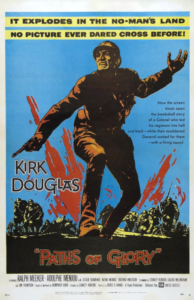
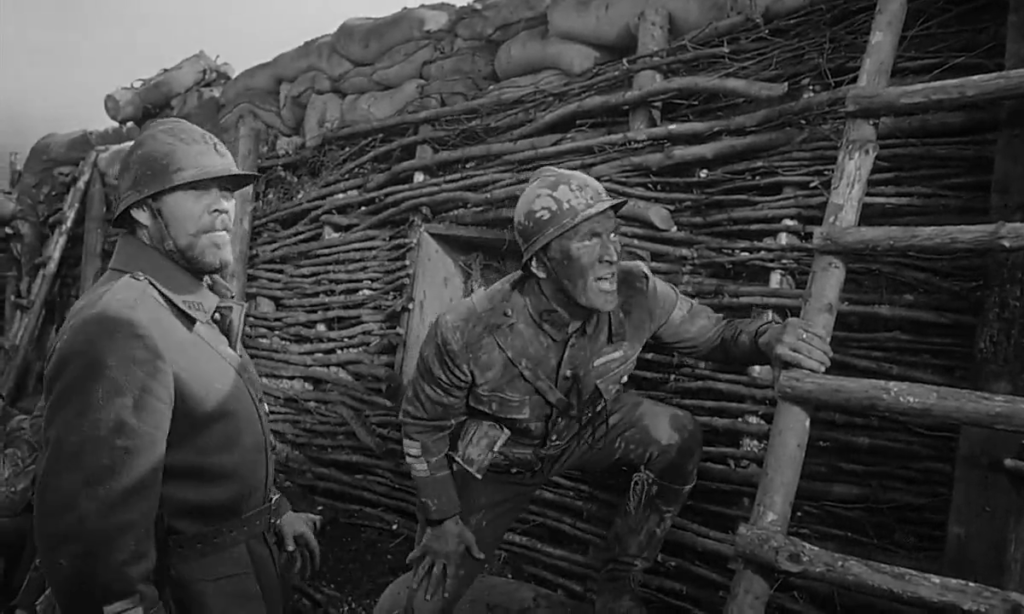
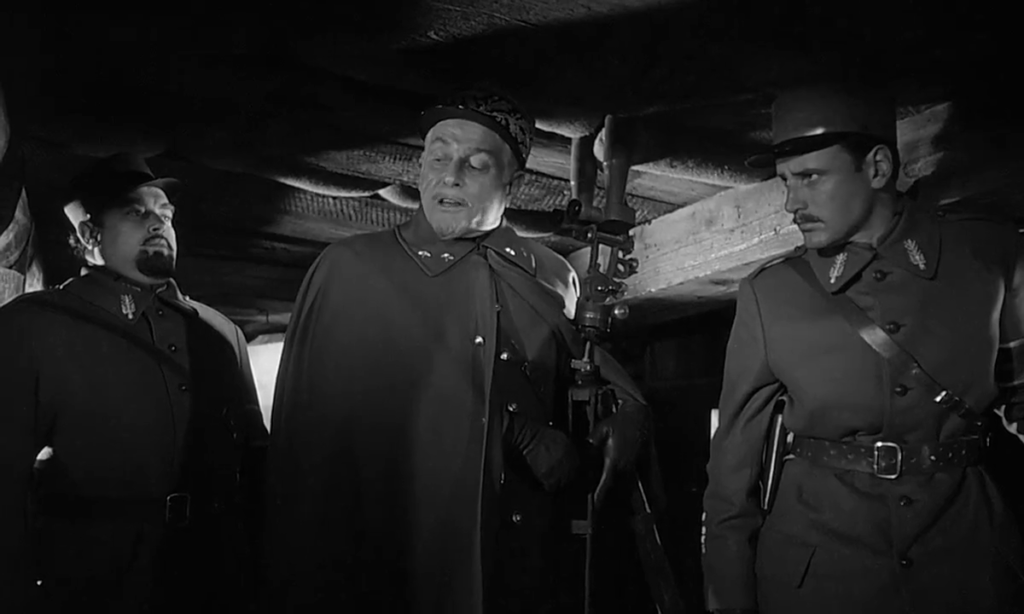
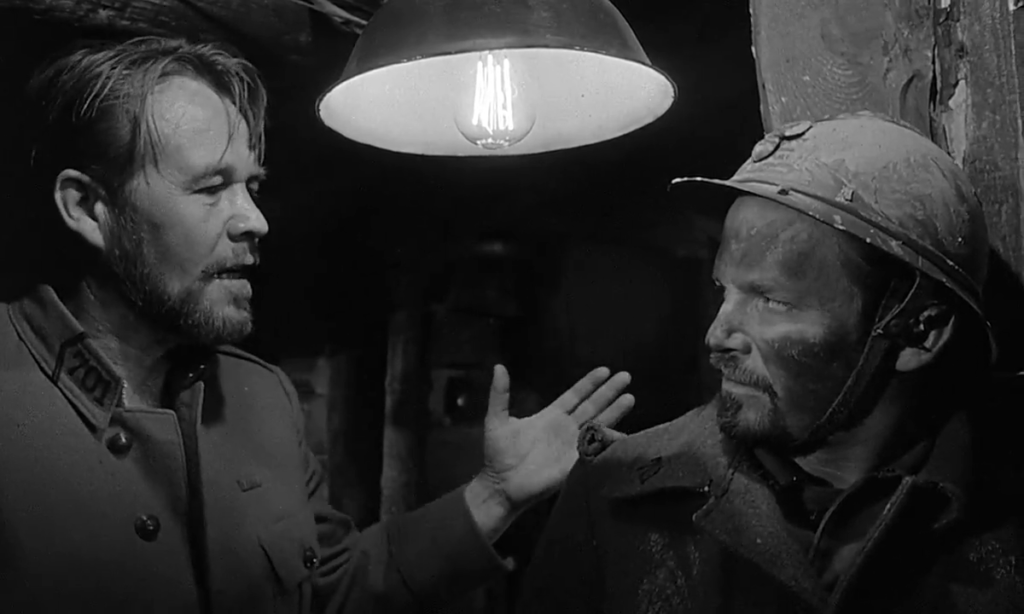
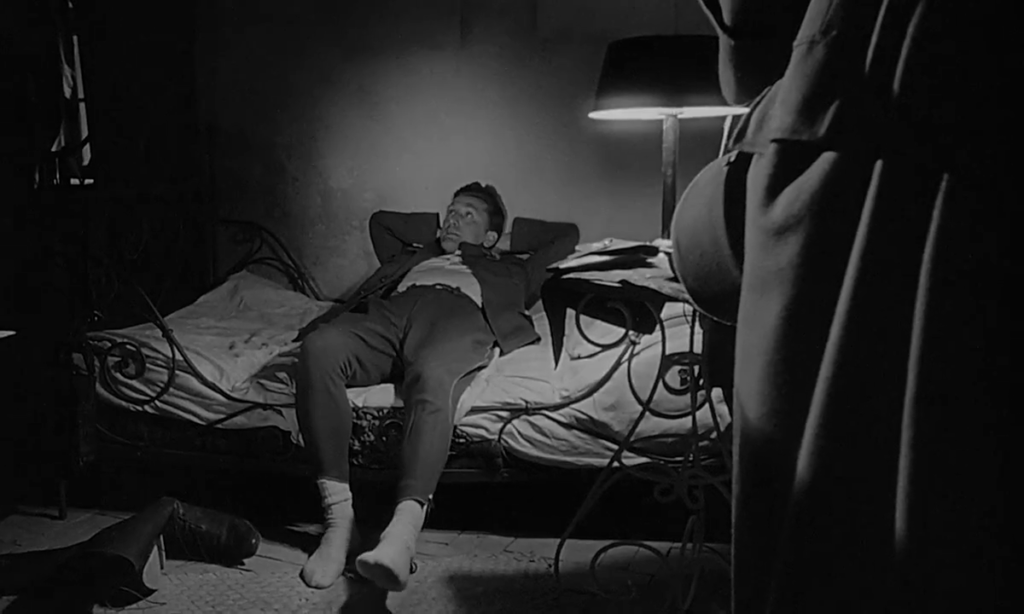
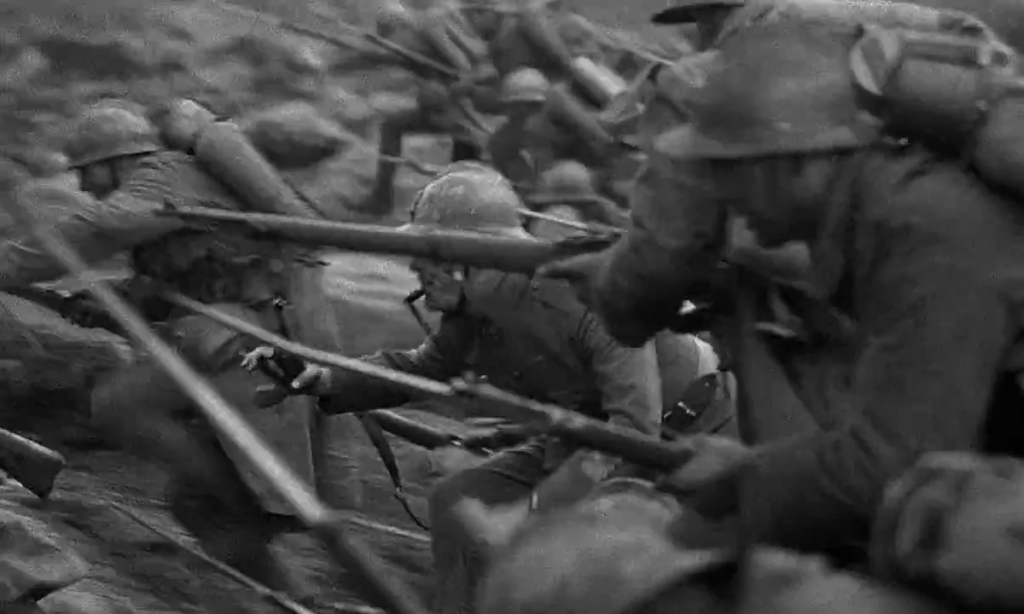
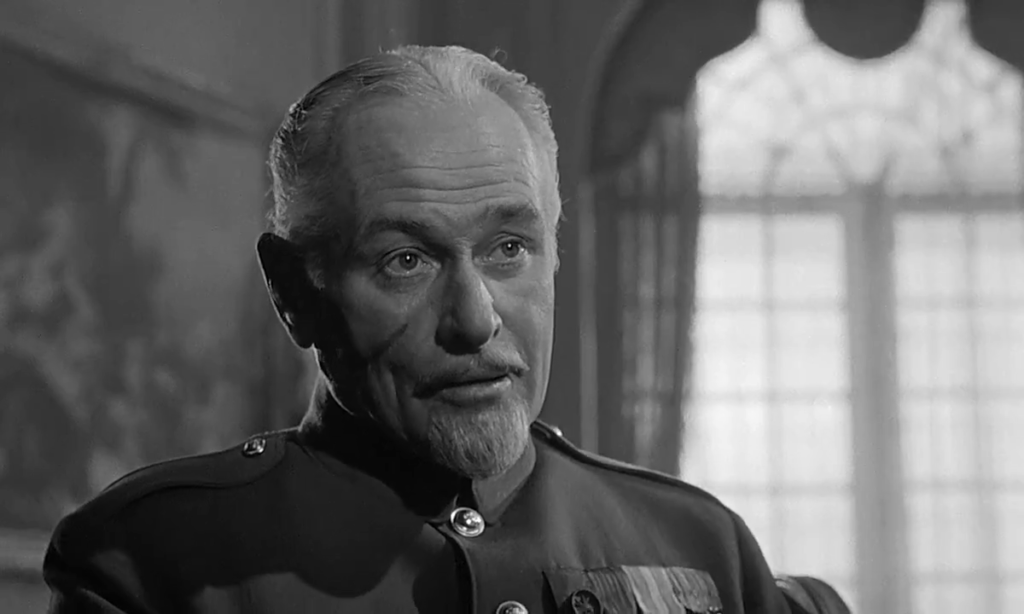
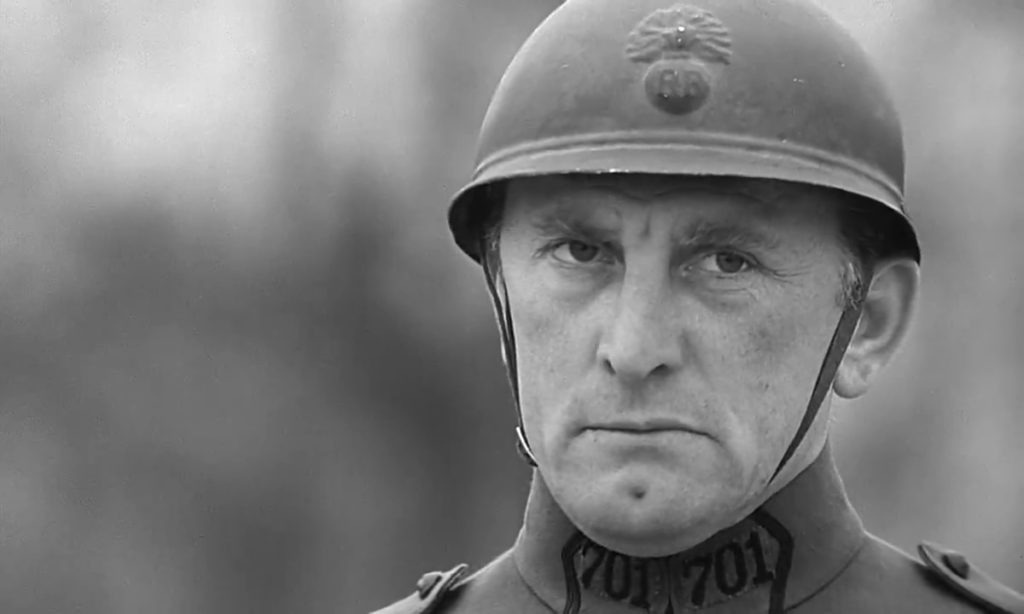
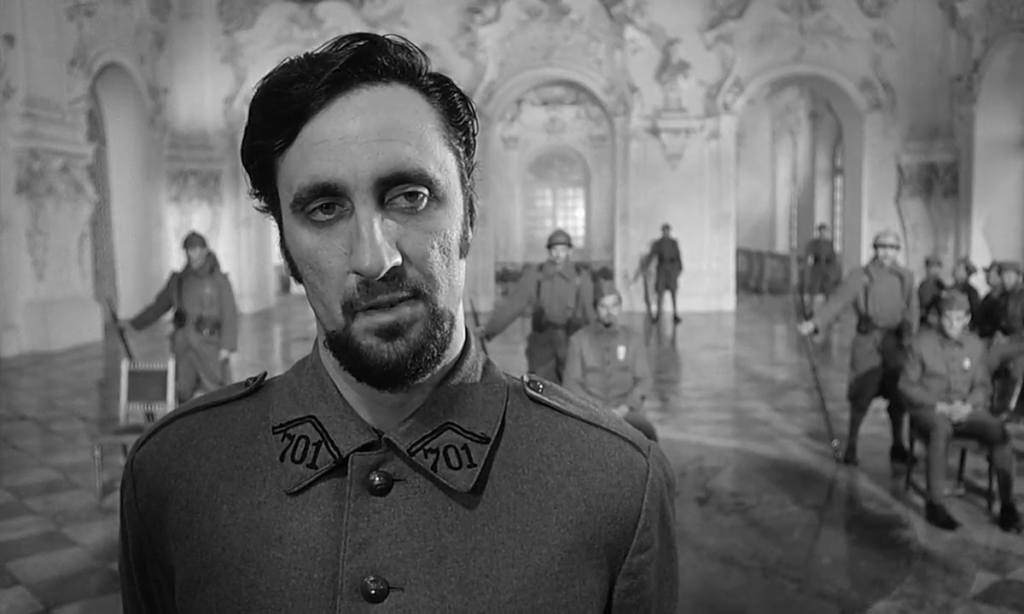
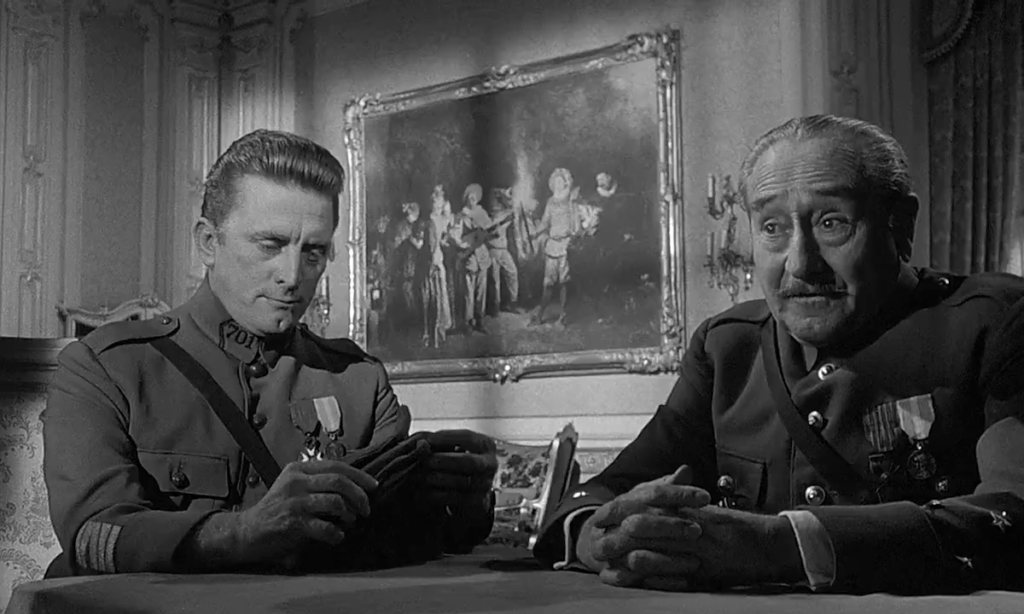
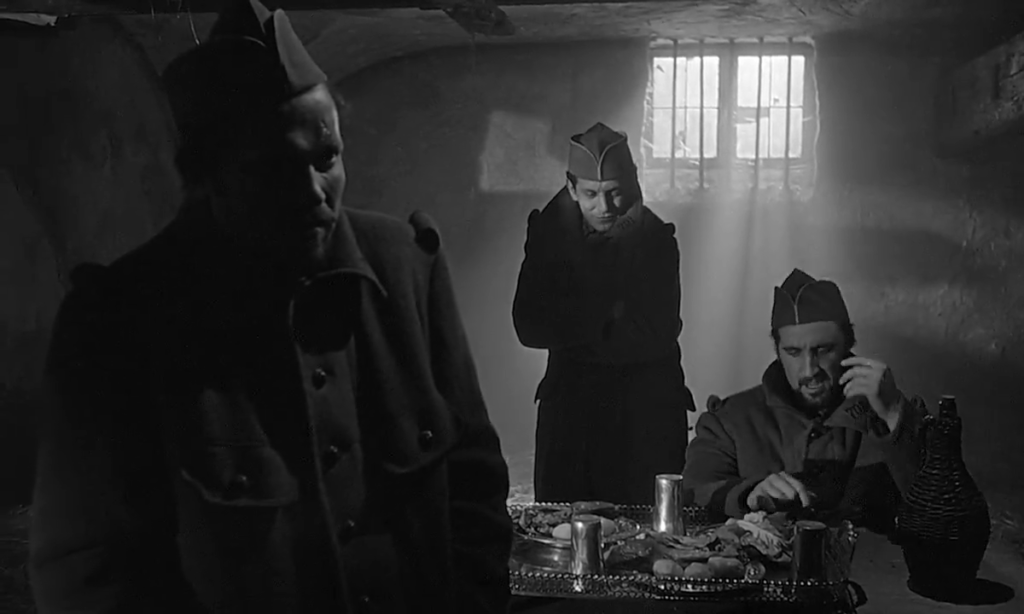
One thought on “Paths of Glory (1957)”
A no-brainer must-see. As posted (3/29/21) in ‘The ’40s-’50s in Film’ (fb):
“And one way to maintain discipline is to shoot a man now and then.”
‘Paths of Glory’ (1957): From the early (and better) half of Kubrick’s career, ‘POG’ remains as strong as ever. It’s usually referred to first and foremost as an anti-war film. France, in fact, took the film at a deceptive face value as an anti-French military film and banned it from the country until 1975.
Winston Churchill viewed the film with reason, calling it a highly accurate depiction of trench warfare and the sometimes misguided workings of the military mind. (Wikipedia)
~ which seems to me to mostly nail it. It’s about a particular General who is a bit bonkers (full of himself yet totally lacking in self-awareness). As played by George Macready. the General is not all that far removed from the wacko he plays in ‘Gilda’ (but minus that particular shadiness and sexual ambiguity).
The larger story reads as being about fall guys – regularly created in countless situations; this one just happens to be a war. We see a hierarchy in which lower-level men are used (off the battlefield) to suit the capricious needs of their superiors (whether generals or merely lieutenants). We’re watching a blame game.
John Huston once said you can’t have a good film without a good script. This one – by Kubrick, Calder Willingham and Jim Thompson (!), based on Humphrey Cobb’s novel – is just about flawless. It makes the film crackle and fly and also makes it worthy of more than a single viewing. It’s rich.
Kirk Douglas gives one of his best performances – bolstered by the solid work by Macready and Adolphe Menjou (being both solicitous and sinister; sometimes simultaneously). Standouts in the supporting cast: an almost-unrecognizable Wayne Morris as incompetent Lt. Roget and Ralph Meeker as admirable but nevertheless screwed Corporal Paris.